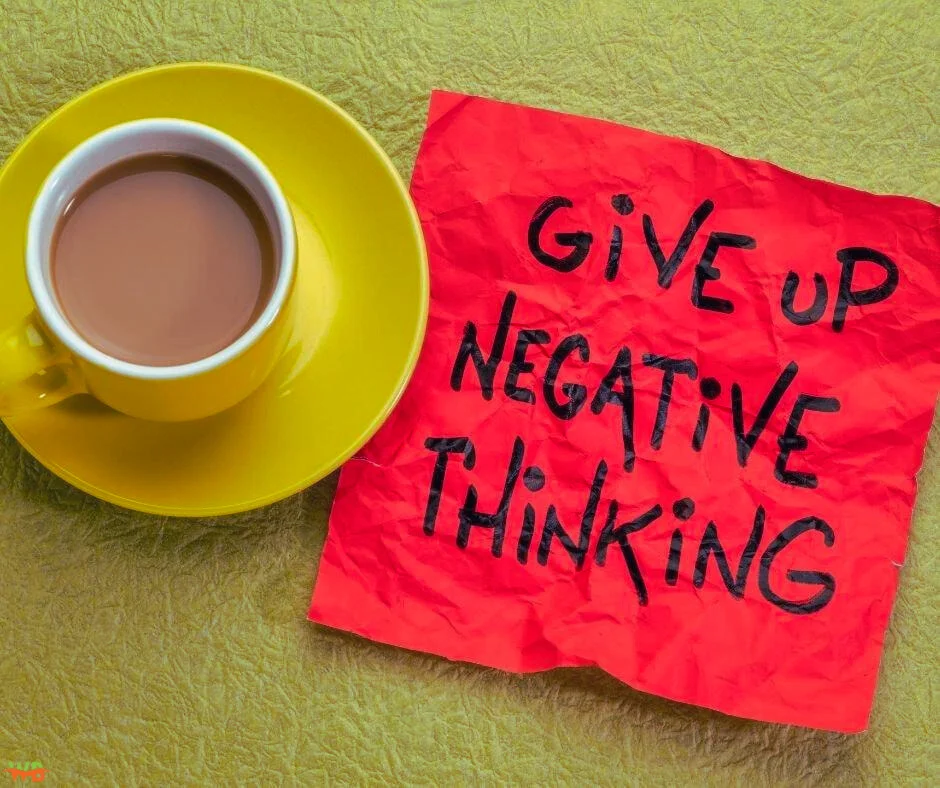Overcoming addiction is a monumental achievement, but the journey doesn’t end there. Shifting your mindset is crucial for maintaining sobriety and promoting personal growth. This article will explore how to change the way you think after overcoming substance abuse, addressing negative feelings, cognitive distortions, and negative thinking.

Understanding Substance Abuse and Its Impact on Your Mind
Substance abuse deeply affects the brain’s reward system, altering how you perceive pleasure and reward. The chemicals involved in addiction can lead to significant changes in thought patterns, making it challenging to shift from negative thinking to a more positive outlook.
The brain becomes wired to seek out substances to experience pleasure, often at the expense of other rewarding activities. This rewiring can create entrenched habits that are hard to break, but recognizing these changes can empower you to take steps toward reshaping your thought processes and reclaiming control over your mind.
Dealing with Negative Feelings

Addiction and the recovery process frequently bring about negative emotions. If these emotions aren’t handled effectively, they may trigger cravings and increase the risk of relapse. Techniques such as mindfulness, emotional reasoning, and focusing on the present moment can help you navigate these feelings without falling back into substance use.
Additionally, it’s important to acknowledge and validate your emotions rather than suppress them. Engaging in regular mental health check-ins, journaling, and seeking therapy can provide a safe space to explore and process these feelings, ultimately helping you develop healthier coping mechanisms.
Recognizing and Treating Cognitive Distortions

Cognitive distortions are flawed beliefs and thought errors that perpetuate negative thinking patterns. Common cognitive distortions include all-or-nothing thinking, mental filtering, and polarized thinking. Identifying these distortions is essential for developing a healthier mindset.
Once identified, challenging these distortions through logical reasoning and evidence-based thinking can help dismantle their hold on your mind. Techniques like cognitive restructuring, where you replace distorted thoughts with more balanced and realistic ones, are key components of cognitive behavioral therapy (CBT) and can significantly improve your mental well-being.
Overcoming Negative Thinking Patterns

Negative thinking patterns, such as black-and-white thinking and negative self-talk, can hinder your recovery and personal growth. Cognitive behavioral therapy (CBT) is an effective treatment for addressing these thinking errors and patterns. CBT helps you recognize, challenge, and change irrational thoughts and beliefs.
Incorporating CBT techniques into your daily life can help you break the cycle of negative thinking. Practicing mindfulness and staying present can also reduce the tendency to ruminate on past mistakes or worry excessively about the future, fostering a more balanced and positive mindset.
Addressing Emotional Reasoning
Emotional reasoning is a mental mix-up where you accept your feelings reflect reality. This can lead to a distorted view of yourself and the world around you. Learning to differentiate between feelings and facts is crucial for overcoming this thinking error.
Developing this skill involves consistently questioning the validity of your emotional responses and seeking out objective evidence. Over time, this practice can help you cultivate a more grounded and realistic perspective, reducing the influence of emotional reasoning on your daily decisions and overall mental health.
Building Self-Esteem and Positive Thought Patterns

Addiction often goes hand in hand with low self-esteem and negative thinking patterns. Building self-esteem involves recognizing your worth and achievements, no matter how small. Positive self-talk, setting realistic goals, and celebrating your successes can help foster a healthier self-image.
Additionally, surrounding yourself with supportive and encouraging people can significantly impact your self-esteem. Engage in activities that make you feel competent and valued, and remember that building self-esteem is a gradual process that requires patience and persistence.
The Role of Addiction Treatment in Changing Thought Patterns
Effective addiction treatment goes beyond detoxification; it involves addressing the psychological aspects of substance use disorders. Therapy, support groups, and holistic methods can assist in cultivating healthier thought processes and coping strategies.
Comprehensive addiction treatment programs often include education on cognitive distortions and strategies to combat them, which can be pivotal in transforming your mindset. Furthermore, the support and shared experiences within these programs can provide a sense of community and understanding, reinforcing your commitment to positive change.

Coping with Withdrawal Symptoms and Cravings
Withdrawal symptoms can trigger negative thoughts and emotions. Recognizing that these symptoms are temporary and a natural part of the recovery process can aid in managing them more effectively. Support from family members, therapists, and support groups is crucial during this phase.
Developing a personalized plan to manage cravings and withdrawal symptoms can also be beneficial. This might include activities to distract yourself, such as exercise, hobbies, or spending time with loved ones, as well as techniques like deep breathing and meditation to help you stay calm and focused.
Maintaining a Positive Outlook in the Recovery Process
Maintaining a positive outlook involves focusing on the present moment and recognizing the progress you’ve made. Practicing gratitude, mindfulness, and engaging in activities that bring you joy can help you stay positive and motivated.
It’s also important to set realistic and attainable goals to avoid feelings of overwhelm or failure. Celebrating small victories and being kind to yourself during setbacks can reinforce a positive mindset, making the recovery process more manageable and fulfilling.
Strategies for Personal Growth and a Healthy Mindset
Personal growth is an ongoing process that requires intentional effort and commitment. Developing healthy habits, such as regular exercise, healthy eating, and engaging in hobbies, can contribute to a positive mindset. Exercise, for instance, releases endorphins, which can help improve mood and reduce stress. A balanced diet provides essential nutrients that support brain health and overall well-being. Participating in hobbies not only gives you a feeling of achievement but also helps divert your attention from negative thoughts and cravings.
Surrounding yourself with supportive people and continuing therapy or support groups can also aid in your personal growth journey. Creating a robust support network offers motivation, responsibility, and a feeling of community. Therapy provides a secure environment for you to examine your thoughts and emotions, create coping strategies, and establish personal goals. Support groups, such as Narcotics Anonymous or Alcoholics Anonymous, allow you to connect with others who understand your experiences and can offer valuable insights and encouragement.

1.) Embrace Lifelong Learning and Self-Improvement
Embracing lifelong learning and self-improvement can further enhance your personal growth and mindset. Continuously educating yourself about addiction, mental health, and recovery strategies can empower you to make informed decisions and navigate challenges effectively. This might include reading books, attending workshops, or participating in online courses. Learning new skills or pursuing new interests can also boost your confidence and provide a sense of purpose.
2.) Practice Self-Compassion and Patience
Practicing self-compassion and patience is crucial for maintaining a healthy mindset. Recovery isn’t a straight path, and experiencing setbacks is a normal part of the process. Be gentle and compassionate with yourself during tough times and steer clear of self-blame. Acknowledge and celebrate your progress, however minor, and understand that growth is gradual. Self-compassion can reduce negative self-talk and foster resilience, helping you stay committed to your recovery and personal development.
3.) Set Realistic Goals and Tracking Progress
Establishing achievable goals and monitoring your progress can offer clear direction and drive. Divide your long-term objectives into smaller, attainable steps, and acknowledge every accomplishment as you advance. Keeping a journal or using an app to track your progress can help you stay focused and motivated. Reflecting on your journey can also provide valuable insights into what strategies work best for you and where you may need to adjust your approach.
4.) Engage in Mindfulness and Stress-Reduction Techniques
Engaging in mindfulness and stress-reduction techniques can support a healthy mindset and personal growth. Practices such as meditation, yoga, and deep breathing can help you stay present, manage stress, and reduce anxiety and thinking errors.
Mindfulness can also enhance self-awareness, allowing you to recognize and address negative thought patterns more effectively. Incorporating these practices into your daily routine can create a sense of calm and balance, making it easier to navigate the ups and downs of recovery.
5.) Give Back and Find Your Purpose
Giving back to others and finding a sense of purpose can significantly impact your personal growth and mindset. Volunteering, mentoring others in recovery, or participating in community activities can provide a sense of fulfillment and connection. Assisting others can strengthen your dedication to your own recovery and serve as a reminder of the progress you’ve achieved. Finding purpose and meaning in your life can create a strong foundation for continued growth and resilience.
6.) Create a Positive Environment
Creating a supportive environment at home and in your daily activities can boost your mental health and promote personal growth. This might include decluttering your living space, surrounding yourself with uplifting and inspiring materials, and limiting exposure to negative influences. A positive environment can reinforce your commitment to a healthy lifestyle and provide a sense of peace and stability.
How to Change Your Way of Thinking After Drug Addiction Treatment
Changing the way you think after overcoming addiction is a challenging but rewarding process. By addressing substance abuse’s impact on your mind, managing negative feelings, recognizing and treating cognitive distortions, and building positive thought patterns, you can achieve a healthier, more fulfilling life. Remember, recovery is a journey, and every step you take towards a positive mindset is a step towards a brighter future.

